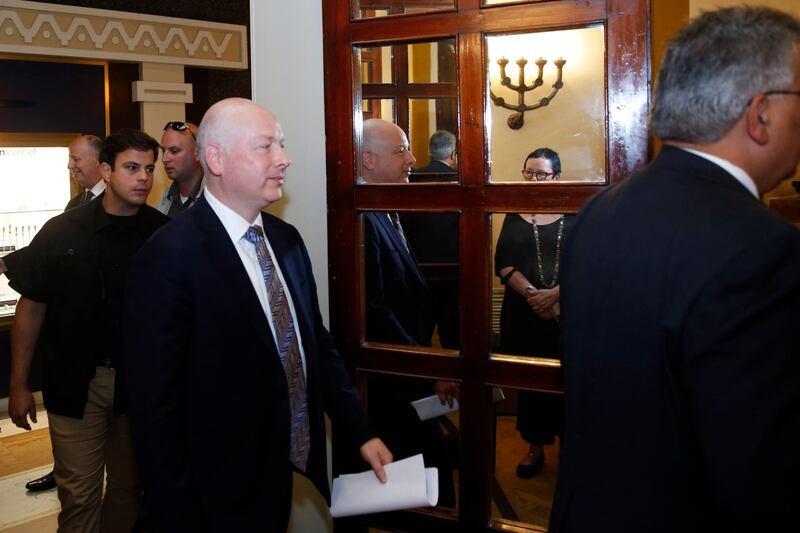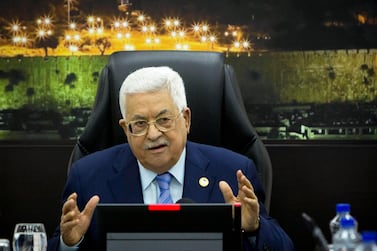The United States Special Envoy to the Middle East said he supports the partial annexation of the occupied West Bank by Israel in support of comments made by the US ambassador to Israel last week.
Speaking at a conference in New York on Sunday, Jason Greenblatt said that ambassador David Friedman's words were said "elegantly” and “I support his comments".
Last week, Mr Friedman told The New York Times that, under certain circumstances, he thinks "Israel has the right to retain some, but unlikely all, of the West Bank".
The comments have sparked widespread condemnation from Palestinians, who also lay claim to the West Bank, territory Israel captured in 1967 and that peace plans have long put forward as part of a future Palestinian state. The annexing would also be in violation of international law.
It comes a week ahead of US President Donald Trump’s controversial economic-focused conference in Bahrain, which is being touted as the first step in his administration’s so-called Deal of the Century to end the Israeli-Palestinian conflict. However, few details have been released yet about who will attend and what will be proposed and discussed.
Palestinians are roundly boycotting the event, saying it is biased against them because it focuses on economic development, separately from the overarching political issues and Israeli occupation. Mr Trump's team say they plan to raise billions of dollars from Arab Gulf states and other participants to help the failing Palestinian economy, which was put under further pressure last year when the US cut off aid to Palestinian institutions.
Mr Greenblatt said that the White House might again delay publishing its long-awaited plan until after Israeli elections in September, though no decision had yet been made. Israeli Prime Minister Benjamin Netanyahu, a staunch ally of the US president, won elections in April but failed to form a ruling coalition, sending the country back to another election.
It remains unclear what political proposals will feature in Mr Trump’s plan, though it is not expected to include the creation of a Palestinian state in line with the US’s long-standing support for a two-state solution. Since the president took office, the US has sidelined the Palestinian leadership and institutions and also cut off aid to Palestinian refugees.
Mr Greenblatt told the conference that the administration is “not looking for regime change in the Palestinian Authority".
In a last minute campaign move in April, Mr Netanyahu pledged to annex parts of the West Bank if re-elected. Such a move is welcomed by the right-wing and religious parties, who he again depends on for re-election.
In the run-up to April’s election, Mr Trump announced US recognition of Israel's sovereignty over the occupied Golan Heights, in violation of international law, in a move seen as intended to boost Mr Netanyahu's standing.






